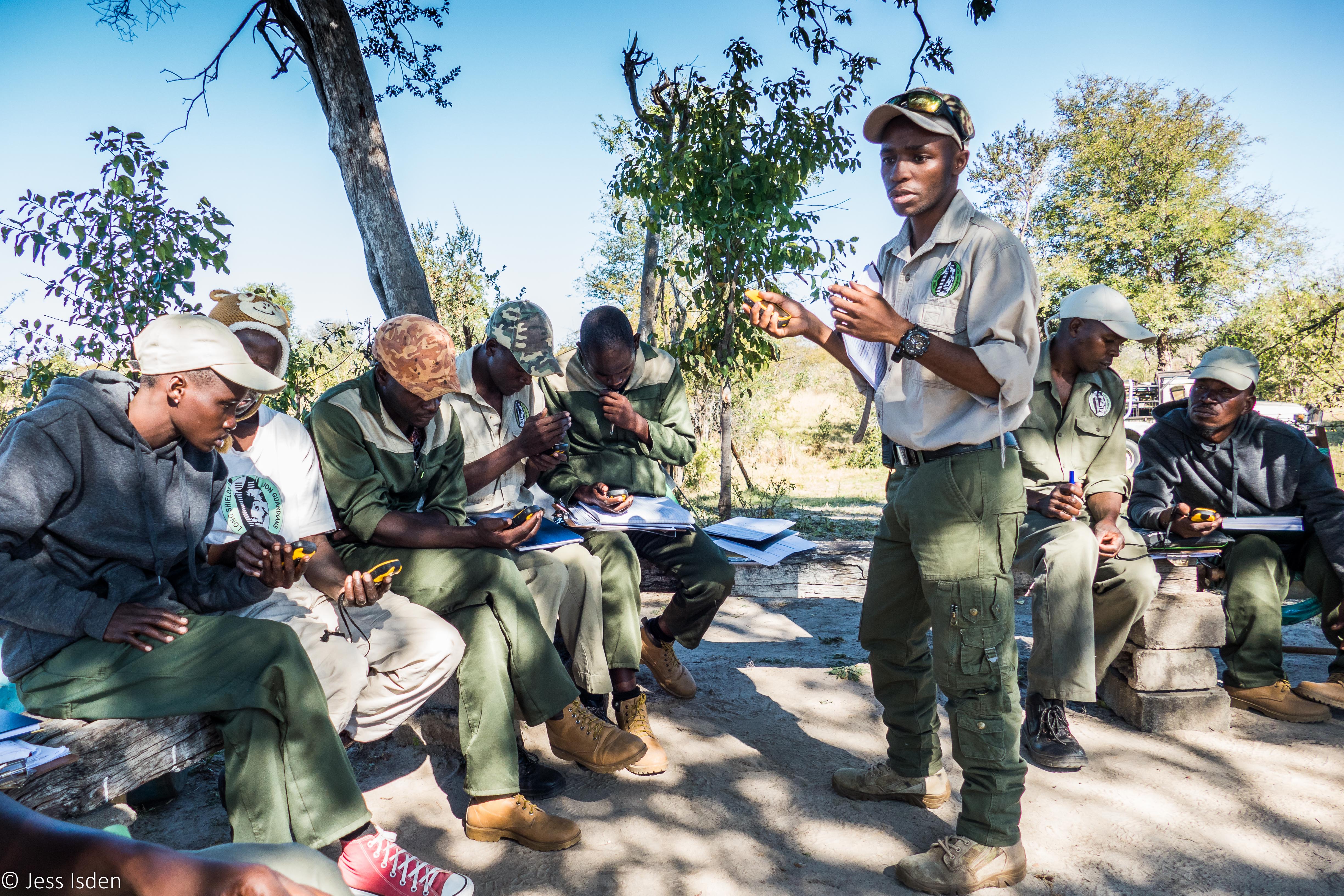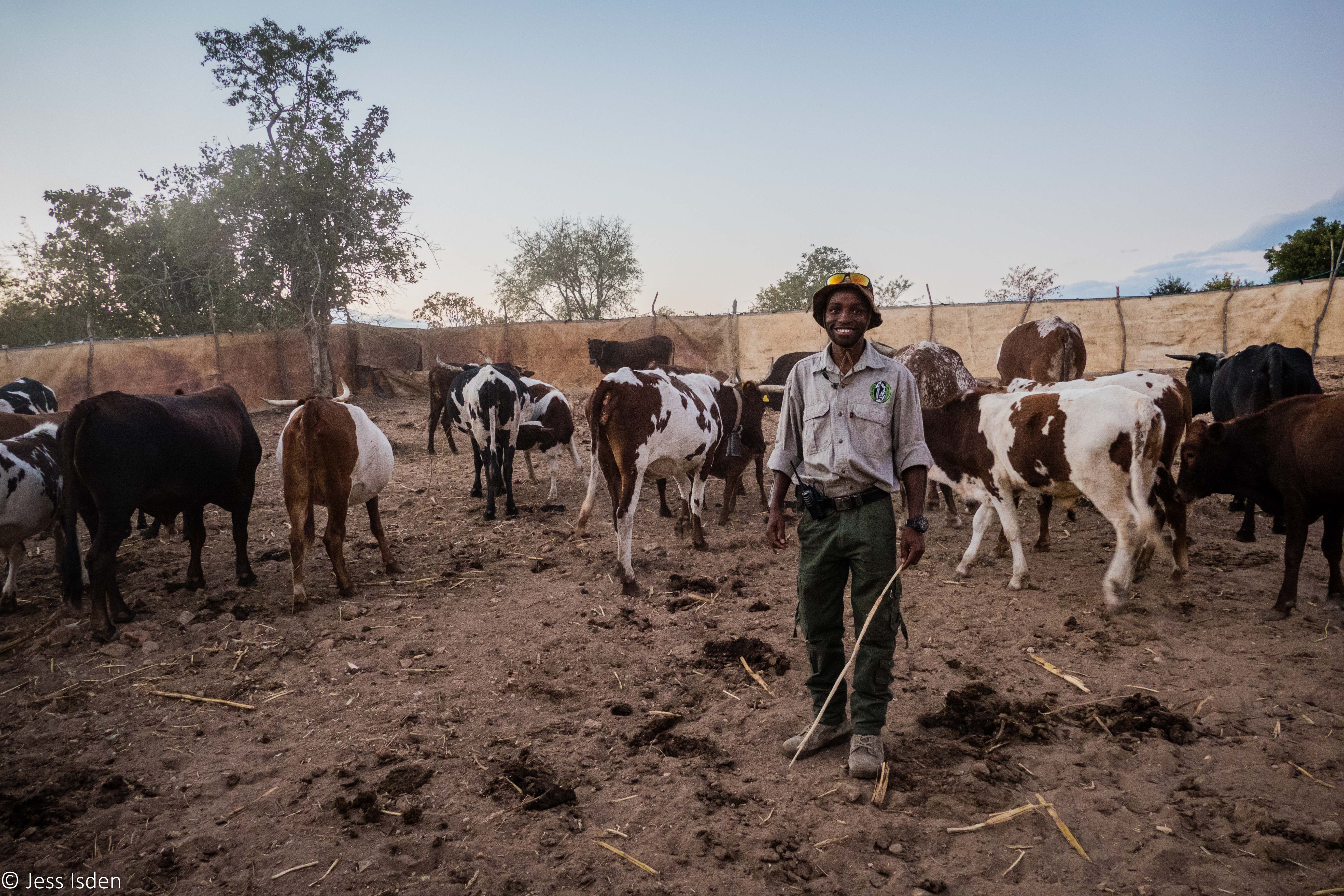News
Liomba Junior Mathe’s reflections on the realities of human-carnivore conflict in Zimbabwe
Human carnivore-conflict is a major global conservation issue for wild carnivores. It also results in huge social and economic losses to people living close to protected areas. In the Hwange area in Zimbabwe, one of the main drivers of conflict arises from lions killing livestock owned by members of rural communities, these community members frequently retaliate by killing lions.
Lion Guardians
I manage the Long Shields Lion Guardian Programme in Hwange, a community-conservation initiative that employs local people who form a link between conservationists and their communities, providing information and encouraging cooperation, using traditional knowledge and novel technology to mitigate livestock loss, improving the livelihoods of local communities, and conserving predators.
One of various mitigation measures used is our Early Warning System, where our Lion Guardians, equipped with a bicycle, vuvuzela, GPS and 3G smart phone, alert herders to the presence of collared lions near communities (we are able to track these lions through their GPS signals), thereby limiting lion-cattle interactions.

Leo training his team of Long Shields Lion Guardians © Jess Isden
Understanding and learning from communities
Living with lions in your backyard is not easy. For many African rural communities, livestock is their source of wealth and savings. One can use livestock to pay for school fees and hospital bills. Lions killing livestock is the equivalent of waking up to find your savings taken away overnight!
Hwange National Park (HNP) in Zimbabwe is a thrilling destination for international tourists, but for a villager living on the periphery of the park the feeling is different. It can be a nightmare as they live in fear of marauding wild animals! Growing up near HNP, I understood the local rural culture and the challenges facing local people. I have learnt that as conservationists, we cannot achieve our goals until we understand the circumstances of the local people.
The impact of conflict often goes far beyond one’s imagination of how it would feel to lose your most valuable property, even when appreciating the years of hardship endured to secure it. Livestock that has been killed by a predator is no good to a farmer anymore. Such a loss often induces anger and frustration which can lead to retaliatory killing of lions and other predators. My early conservation career days, before our programme was established, where the toughest ones – we would find ourselves faced by angry villagers who felt that by promoting the conservation of lions we didn’t care about their livelihoods. Our commitment to the Long Shields Lion Guardian Programme has changed these negative attitudes of people, and with nearly a decade of experience working with farmers living alongside protected areas I’m pleased to have earned their trust.
Leo using VHF radio telemetry tracking equipment to locate collared lions
The realities of working with lions and communities
As a Community Liaison Officer, one has to deal with unusual challenges and it can feel like there is immense pressure with the communities relying on you. Every day I check the movement of collared lions and if a lion lurks near a community, it’s my responsibility to issue an early warning alert, assemble the lion guardian team and village men who, accompanied by dogs and armed with vuvuzelas (strident horns used at African football matches), set off to the exact location of the hiding lion – and chase it back towards the park! We undergo extensive training to carry out these lion chases and learn to read the lions behaviour, however we do still experience some hair-raising moments!
Over the past 5 years, locally I have witnessed first-hand the impacts of the rapid increase in human populations causing lion range and habitat to disappear dramatically. Now my work has become even more critical within this rapidly changing context. To respond to the growing challenges faced by both lions and the neighbouring communities, and based on the impacts and lessons learnt, my priority has been to continue to adapt, build and share innovative conservation tools on the ground. I have dedicated my life to helping communities alleviate rural poverty through improving rural livelihood systems by reducing livestock losses to lions, and to integrate carnivores into community everyday life ensuring that communities are active conservation partners.
Wild animals encroach into human landscapes, just as humans encroach into wild landscapes. Conservationists aim to reduce this conflict in many different ways, but so long there is wildlife and people in close proximity there will always be conflict.
Working towards human wildlife coexistence requires a holistic approach where rural communities must not be left behind in conservation decision making.
To do this, there is need to consolidate and optimise multi-sectoral efforts through a shared sense of ownership of both the problem and its solution. This can be achieved by incorporating the indigenous culture and knowledge, and developing innovative methods that empower communities to invest in the protection of their wildlife as a livelihood strategy, for now and for future generations.
The Long Shields Lion Guardian Programme is part of the Trans-Kalahari Predator Programme.






